If you make living a heart-healthy lifestyle a priority, listen up. With the holiday season upon us, it's important to know what to eat, but more importantly, what not to eat. You are sure to be surrounded by many holiday delights this merry time of year, but it's essential to stay on a healthy track and make good decisions. Eat This, Not That! is here with some common holiday foods a cardiologist avoids like the plague—and what they eat instead.
Here are five holiday foods a cardiologist avoids:
Elizabeth Klodas, a board-certified cardiologist, author, speaker, the founder of the Preventative Cardiology Clinic near Minneapolis, Minnesota, and the founder and chief medical officer of Step One Foods, shares five popular holiday foods she stays away from. So before you hit up your next holiday party, take a good look at this list. It's good for your heart and overall health this time of year and beyond!
1. Eggnog
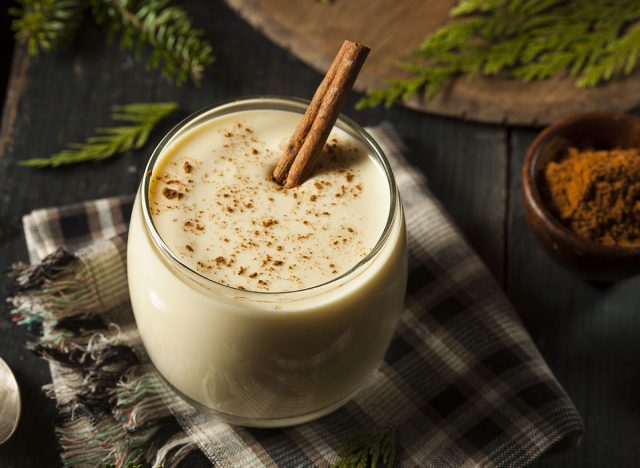
Here's a beverage that everyone loves to enjoy all season long. But beware; it's a beverage that's high in calories and filled with cholesterol, saturated fat, and added sugars. Dr. Klodas explains, "When it comes to heart health and especially cholesterol management, it's about the worst drink you can have."
2. Rolls/Bread
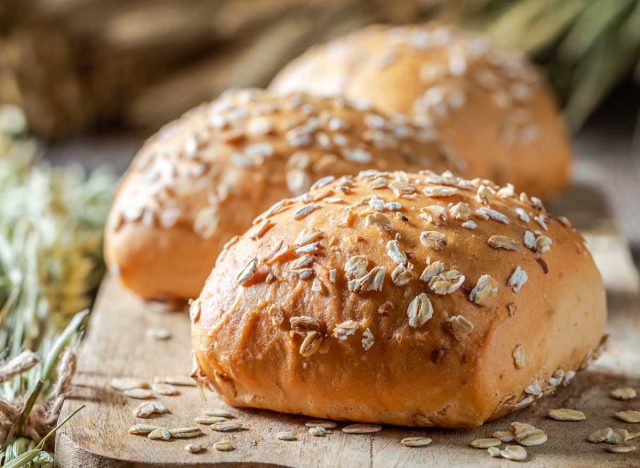
Let's be honest: We all love a good dinner roll—especially when it's smothered with butter. We hate to be the bearer of bad news, but hold the bread and the rolls at your next holiday feast. Most of them will give you empty calories, sodium, and more. "Baked goods are the number one source of sodium in the American diet, and excess sodium can push blood pressure up," Dr. Klodas reveals.
3. Pre-Dinner Snacks
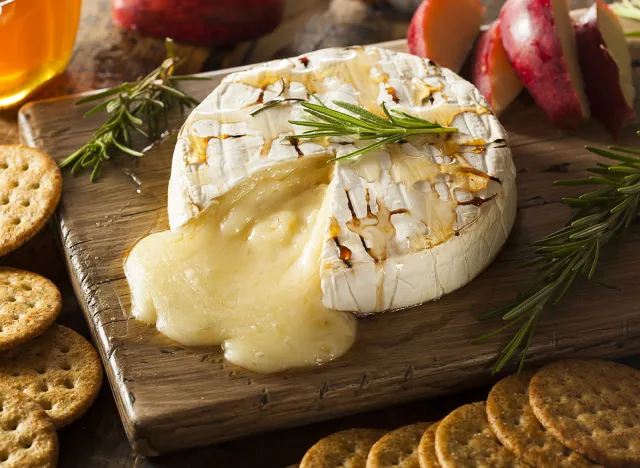
'Tis the season for snacking before meals and enjoying festive appetizers—along with your cocktails, of course. Dr. Klodas knows this one can be a challenge for many of us to avoid, because who doesn't arrive to a holiday gathering hungry and ready to eat?
"Pre-dinner snacks tend to be calorie-dense and relatively nutrient-poor," Dr. Klodas shares. "Staying away from these items helps you save your calorie, sodium, and fat budgets for items that have better overall nutrient profiles." So pass on the festive baked brie, and save your appetite for dinner!
4. Mixed Drinks
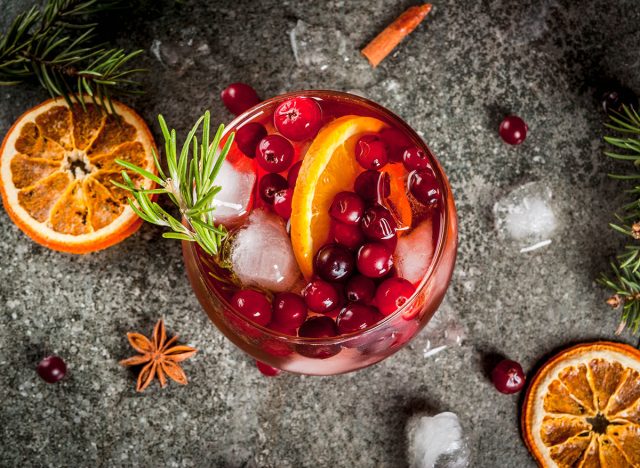
Don't be disappointed—you knew this one was coming. Hold the gingerbread martinis and cranberry Aperol spritzes! In any case, lightening up on alcohol is a good idea all year long.
"Mixed drinks especially should be avoided as they deliver a lot of added calories and sugars on top of the other alcohol-related negative cardiovascular effects, including increased risk of heart rhythm abnormalities, worsening cholesterol profiles, and higher blood pressure readings," Dr. Klodas explains.
5. Holiday Cookies

You heard that right—get your hand out of the cookie jar. Sweets in general are always wise to avoid or eat in moderation. It's a good idea to simply stop eating when you're full after dinner, even though desserts always look amazing.
Dr. Klodas tells us, "Excess weight is a risk factor for a whole host of health conditions ranging from diabetes to sleep apnea and is a major risk factor for developing heart disease. One cookie is around 100 calories. To burn that off, you have to walk a mile."
Here are the holiday-friendly foods a cardiologist eats instead:
While you want to be good, you also want to eat, drink, and be merry with your loved ones. Here are some festive choices that allow you to get in the holly-jolly spirit while staying heart-healthy.
1. Citrus Fruit

Your cheese platter will most likely have crackers and some of your favorite cheese spreads on it, but what about citrus fruits and nuts? "Winter is peak season for citrus fruit, so they're especially delicious around the holidays," Dr. Klodas says. "I load up on navel oranges, clementines, and tangerines as my go-to snacks not just for taste but for the extra vitamin C boost that's helpful during colder months."
2. Holiday Dinner (with some tweaks)
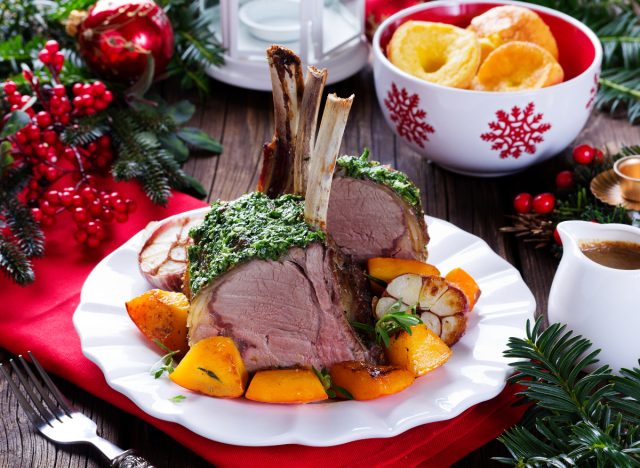
Hey—it's the holidays, and you're not going to eat like this every single day. There will be plenty of choices on the holiday dinner table that will work.
Dr. Klodas shares, "While I do avoid mixed drinks, eggnog, rolls, pre-dinner snacks, and extra cookies, I eat all the foods we make that are traditional to my family's Christmas celebration. At our house, that includes roast beef, various vegetable sides, and an array of desserts. But instead of having roast beef with vegetables, I have vegetables with roast beef. And instead of a full serving of every dessert, I have a half or, more typically, a quarter serving so I can enjoy everything without getting stuffed."
It's all about having the right approach and portions. But if you do happen to overindulge, keep in mind that the following day, you can return to your normal healthy eating routine. Dr. Klodas says, "One over-the-top meal is unlikely to have many long-term consequences, especially when all the other meals are pretty good the rest of the year."
No comments:
Post a Comment